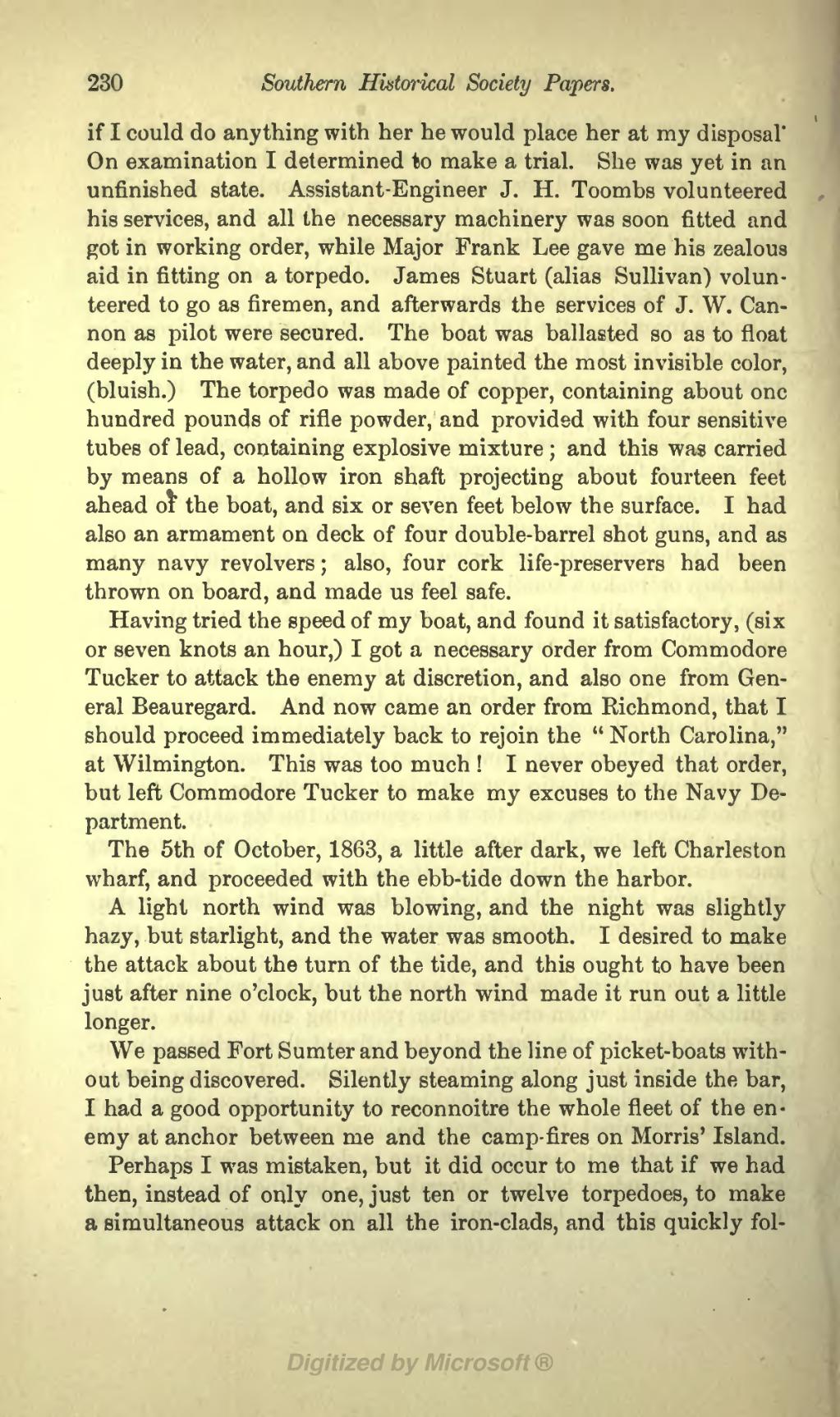if I could do anything with her he would place her at my disposal. On examination I determined to make a trial. She was yet in an unfinished state. Assistant-Engineer J. H. Toombs volunteered his services, and all the necessary machinery was soon fitted and got in working order, while Major Frank Lee gave me his zealous aid in fitting on a torpedo. James Stuart (alias Sullivan) volunteered to go as firemen, and afterwards the services of J. W. Cannon as pilot were secured. The boat was ballasted so as to float deeply in the water, and all above painted the most invisible color, (bluish.) The torpedo was made of copper, containing about one hundred pounds of rifle powder, and provided with four sensitive tubes of lead, containing explosive mixture; and this was carried by means of a hollow iron shaft projecting about fourteen feet ahead of the boat, and six or seven feet below the surface. I had also an armament on deck of four double-barrel shot guns, and as many navy revolvers; also, four cork life-preservers had been thrown on board, and made us feel safe.
Having tried the speed of my boat, and found it satisfactory, (six or seven knots an hour,) I got a necessary order from Commodore Tucker to attack the enemy at discretion, and also one from General Beauregard. And now came an order from Richmond, that I should proceed immediately back to rejoin the "North Carolina," at Wilmington. This was too much! I never obeyed that order, but left Commodore Tucker to make my excuses to the Navy Department.
The 5th of October, 1863, a little after dark, we left Charleston wharf, and proceeded with the ebb-tide down the harbor.
A light north wind was blowing, and the night was slightly hazy, but starlight, and the water was smooth. I desired to make the attack about the turn of the tide, and this ought to have been just after nine o'clock, but the north wind made it run out a little longer.
We passed Fort Sumter and beyond the line of picket-boats without being discovered. Silently steaming along just inside the bar, I had a good opportunity to reconnoitre the whole fleet of the enemy at anchor between me and the camp-fires on Morris' Island.
Perhaps I was mistaken, but it did occur to me that if we had then, instead of only one, just ten or twelve torpedoes, to make a simultaneous attack on all the iron-clads, and this quickly fol-
